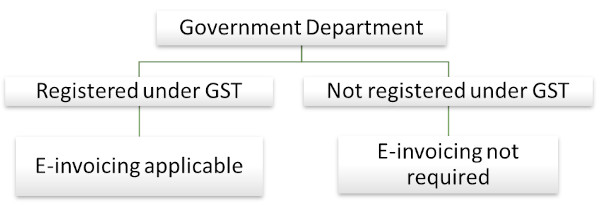E- Invoicing Under GST
Changes To The Regulations After Publication:
1st August 2022
As per the notification No:17/2022, dated 01.08.2022, the threshold for applicability of E-invoicing has been revised to Rs. 10 crores from the existing Rs. 20 crores. Hence, with effect from 1st October 2022, the provisions of e-invoicing is applicable for all registered persons having aggregate turnover exceeding Rs. 10 crores.
What Do You Mean By E Invoicing?
- It is nothing but uploading details of an invoice in Form GST INV-01 on the Invoice registration portal (IRP) and generating an Invoice reference number (IRN).
- The system of E-invoicing is notified under Rule 48(4) of CGST Rules, 2017.
How Is The E-Invoicing System Different From The Existing System?
- The registered persons are still required to generate an invoice like they always do while making a supply.
- In addition to the above, the registered persons are also required to upload the details of the same in Form GST INV-01 on the Invoice registration portal (IRP) and generate an Invoice reference number (IRN).
- The generated E-invoice containing the IRN & QR code should be given to the customer.
Frequently Asked Question
1. My turnover is greater than Rs. 20 crores, can I issue a normal invoice to the customer and then comply with the E-invoicing provisions at a later stage?
No, If E-invoicing provisions under section 48(4) is applicable for you, every invoice issued in any manner other than the manner specified (i.e. E- invoice along with QR code and IRN) shall not be treated as a valid invoice.
To Whom Is The System Of E-Invoicing Applicable?
- It is applicable to all registered persons having aggregate turnover exceeding 20 crores during any of the FY from 2017-18 to 2021-2022
- The aggregate turnover includes the turnover of all GSTINs under a single PAN, across India.
What Are The Documents Covered Under E-Invoicing System?
- Invoices
- Credit notes
- Debit notes
What Are All The Supplies For Which E – Invoicing Is Applicable?
- Supplies to registered persons (i.e. B2B transactions).
- Supplies to SEZ (with/without payment).
- Export (with/without payment).
- Deemed Exports.
Frequently Asked Question
2. When more than one GSTINs are available for same PAN, is it mandatory to issue e-invoice for transaction between them (i.e. Transaction between distinct persons)?
Yes, E-invoice is mandatory for supply of goods or services or both to a registered person. Distinct persons (i.e. persons with same PAN but different GSTIN) are also considered registered persons and hence e-invoicing is applicable.
What Are All The Entities Exempt From E-Invoicing?
- SEZ Units
- Insurance
- Banking [including NBFCs]
- Goods Transport Agency [transporting goods by road in goods carriage]
- Passenger Transport Services
- Multiplex Cinema Admissions
Is E-Invoicing Applicable To Exempted Or Nil Rated Supplies?
- No, e-invoice is not applicable to exempted or nil rated supplies. For such cases only bill of supply is issued.
Frequently Asked Question
3. Is e-invoice applicable to reverse charge transactions?
Under the Reverse charge transaction, the recipient needs to generate the invoice and needs to register the same on the portal.
Is E-Invoicing System Applicable To Supplies Made To Government Departments?

How Does The E-Invoicing System Make The Compliance Mechanism Easier?
- The e-invoice data gets auto populated in the GSTR-1 of the supplier. The supplier is allowed to edit the auto populated data.
- In case the e-invoice is cancelled, the auto-populated details will be removed from GSTR-1, automatically and such details are shown in GSTR 1 under the cancelled invoices check box.
- The details of the e-invoice, also gets auto populated in the GSTR-2A of the recipient.
- The details are also sent to the e-way bill system.
Can The E-Invoice Be Cancelled Or Amended?
- IRN should be cancelled within 24 hours from the time of generation of IRN.
- IRN cannot be cancelled if an e-way bill is connected with it or when an officer has verified it during transit.
- Amendments are not possible on IRN.
What Are The Particulars Contained In QR Code?
- GSTIN of supplier
- GSTIN of Recipient
- Invoice number as given by Supplier
- Date of generation of invoice
- Invoice value (taxable value and gross tax)
- Number of line items.
- HSN Code of main item (the line item having highest taxable value)
- Invoice Reference Number (IRN)
- Date of generation of IRN
Frequently Asked Question
4. How to verify the authenticity or correctness of e-invoice?
QR code will enable Offline verification of invoices using Mobile App, Verify ‘QR Code App’.
OR
The e-invoice can be verified by uploading the signed JSON file or Signed QR code into einvoice1.gst.gov.in
Can The Portal Reject An E-Invoice Application?
Yes. IRP can reject an invoice.
- The application will be rejected if the same invoice was reported earlier and already exists in the GST system.
- The portal will perform other key validations in respect of the application, In case of failure, the IRN won’t be generated and invoice will be rejected along with relevant error codes & reasons for rejection.